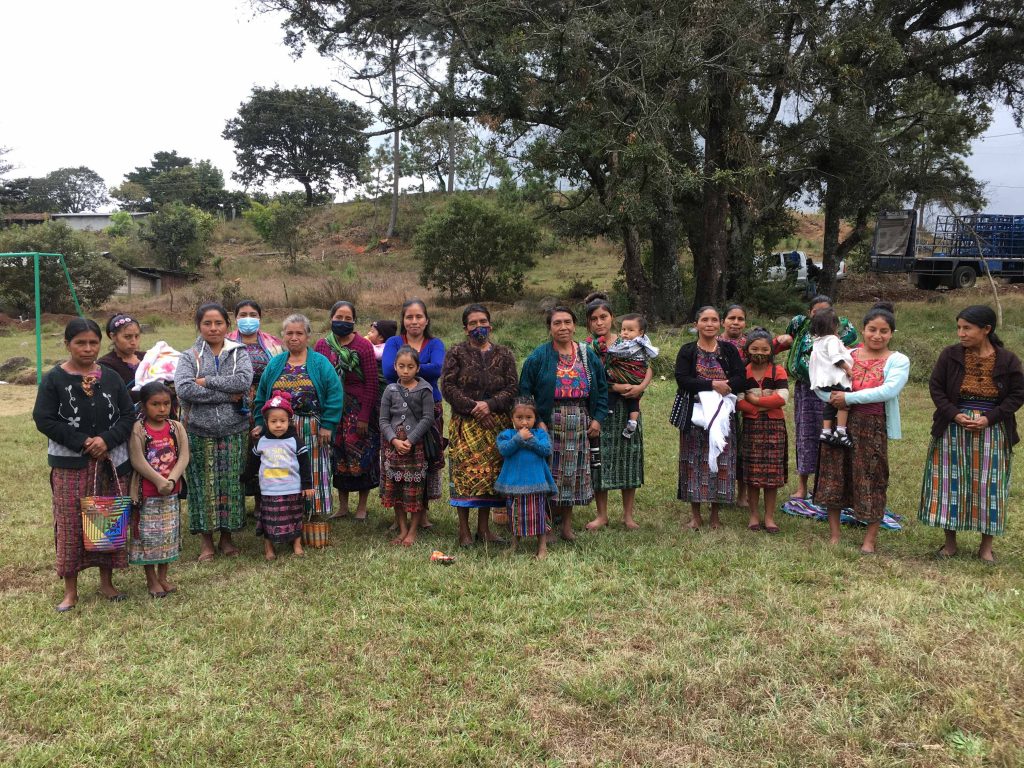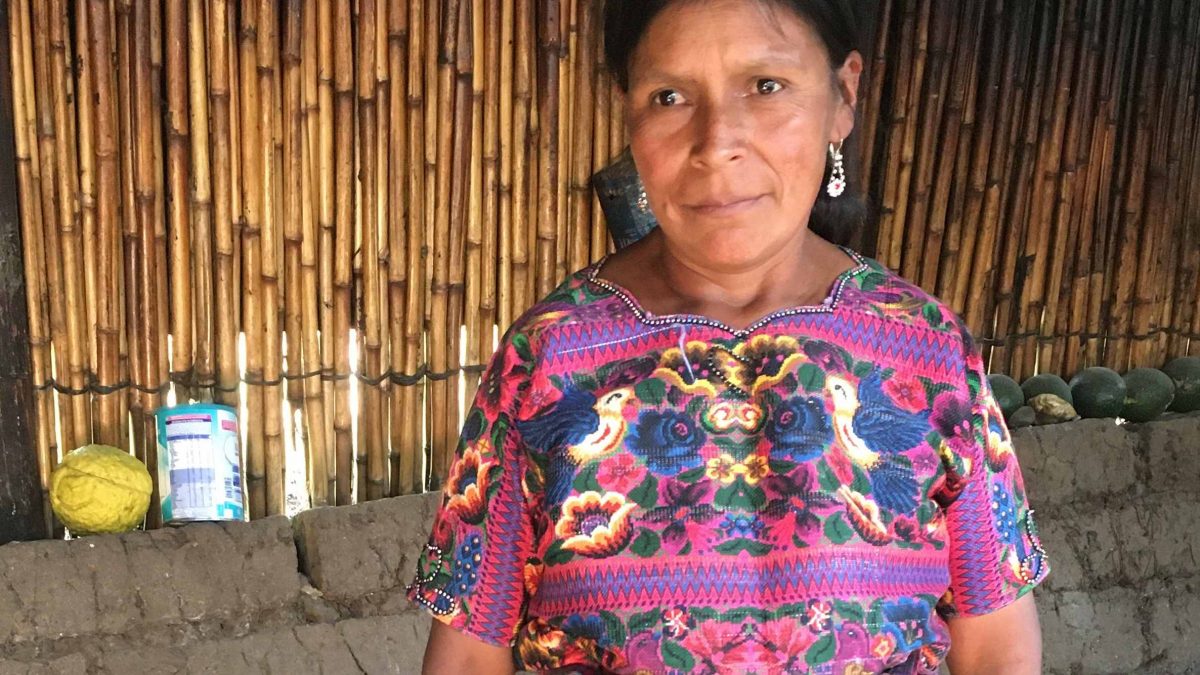A view behind the scenes of Guatemala’s forgotten rural families
Can you imagine being a single mother of 6 children between the ages of 2 and 14, your husband is in jail, and you live in a small hut with a dirt floor, without beds, water, or electricity? This is the hard reality of Dona Juana who lives in a remote village in the Guatemalan highlands.
At first sight it is a peaceful life in the countryside surrounded by lush mountains. We are travelling on probably one of the most scenic routes I have ever been on. But as soon as we arrive and start installing our ecological stoves, our mission for the day, reality hits me.
These families live in extreme poverty (on less than $1.90 per day) and so do approximately 40% of all indigenous Guatemalans. Additionally, another 40% of indigenous people live in poverty. What does that mean? It means they earn less than $1.90 a day, have no running water, no access to health care and no electricity besides being hungry all day.
Poverty and inequality in the country are persistently high, with indigenous people continuing to be particularly disadvantaged. Guatemala is the fifth poorest economy in Latin America and the Caribbean (LAC), with persistently high rates of poverty and inequality. Guatemala also has the sixth highest rate of chronic malnutrition in the world and the highest in LAC. Chronic childhood malnutrition (and stunting) affects 47% of all children under the age of five, 58% are indigenous children, and 66% are children in the lowest income quintile.
On the other hand, 260 Guatemalans own 56% of the national economy. This means that 0.001% of the population owns more than half of the country’s wealth.
And on top of all Covid-19: Approximately one million people are expected to fall into poverty, raising the country’s poverty rate by as much as 6 percentage points, depending on the depth and duration of the crisis, as well as the speed of the economic recovery.
Looking at the statistics you don’t even know where to start. It is clearly not our goal to solve their problems or is it the goal of International Development. But we can’t just install our healthy cook stoves and walk away pretending that Doña Juana and her malnourished children will be OK.
People for Guatemala, together with our In-country partner Hombres y Mujeres en Acción por la Salud y el Desarrollo has worked in the communities around San Martin Jilotepeque, Chimaltenango for 13 years running community development projects. https://www.peopleforguatemala.org/

Focusing on health and education, we operate two health clinics, a learning and skills center, implement various community improvements including running water, ecological stoves, and school improvements. These projects are initiated by members of the villages and have impacted the lives of thousands of families otherwise invisible and forgotten by the Guatemalan government. https://www.peopleforguatemala.org/our-impatct/
Nonetheless, here I am looking into these children’s bulging yet curious eyes, with orange hair because of their severe state of malnutrition and ask myself: How in the world can we help these families to lift themselves out of poverty? With an average education at a third grade level and almost no job opportunities in these remote areas it seems to be an impossible task.
Doña Juana tells me, with tears in her eyes, that her oldest children (ages 12 and 14) need to go to work with her (washing clothes or picking coffee) to at least put some tortillas and salt on the table once a day. Therefore they can’t continue their education and they will most likely face the same dismal future as she does.
No, we don’t agree with this injustice and are more than angry with the incapable and non-responsive governments of the past decades. How can the illiteracy rate of 40% in rural Guatemala remain the same over the past 20 years, leading Latin America’s worst performance, together with Haiti!
We strongly believe that education is key to economic development and one of the strongest weapons to break free from poverty. Therefore, we support more than 100 Middle, High School and University students with scholarships to further their education.https://www.peopleforguatemala.org/what-we-do/education/scholarships/ This will be the only way to alleviate poverty, reduce family size, and empower them to live productive lives.
What strikes me most is that throughout our visit Doña Juana never complains. She receives us with a toothless smile and an open heart. We were surprised when she shows up the next day, as we return to install more stoves in her neighbors’ houses, to gift us a knitted bag that probably took her all night to make.
Even more so, after this great proof of kindness, I ask myself once again how can we help Doña Juana and her family? This question has accompanied me for almost 20 years now, the time I have lived far away from my German roots and worked in International Development. To be honest, I don’t have the answer. But I know that I can’t just sit still and do nothing as ignorance also kills people!
Doña Juana and her children are invisible and forgotten in the beautiful but cruel reality of the Guatemalan highlands. So, I do what is within my power and is part of my job as the Development Director of People For Guatemala. I give them a voice because I want them to be seen. I make connections with other NGOs (non-governmental organizations) and people interested in helping and look for long-term solutions.
Written by Denise Lorenz



